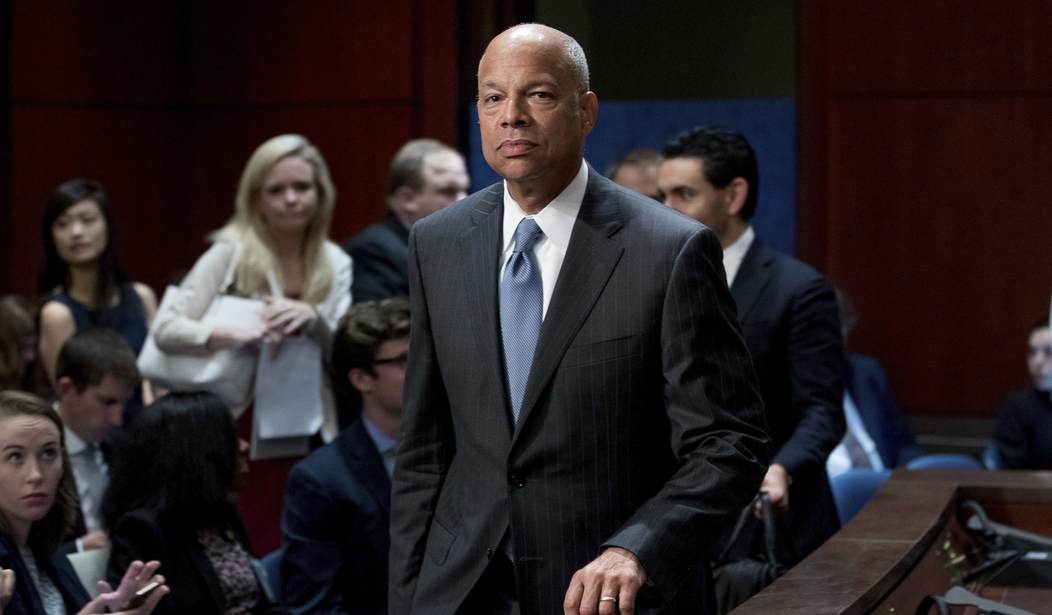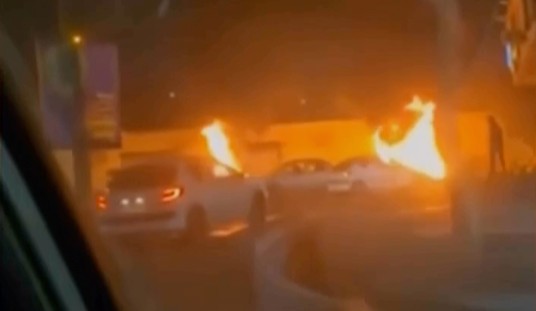WASHINGTON — Former Homeland Security Secretary Jeh Johnson told House lawmakers today that he was frustrated with some of the response to the “very troubling” hacking operation by Russia during the campaign 2016 season, from the Democratic National Committee shunning assistance to patch their vulnerabilities to states wary to work with DHS on securing their voting systems.
“Sometime in 2016 I became aware of a hack into systems of the Democratic National Committee. Fresh from the experience with the Office of Personnel Management, I pressed my staff to know whether DHS was sufficiently proactive, and on the scene helping the DNC identify the intruders and patch vulnerabilities,” Johnson said in his prepared opening remarks. “The answer, to the best of my recollection, was not reassuring: the FBI and the DNC had been in contact with each other months before about the intrusion, and the DNC did not feel it needed DHS’s assistance at that time.”
“As summer 2016 progressed, my concerns about the possibility of a cyberattack around our national election grew,” he added, detailing how DHS came up with a plan to designate election systems as specially protected “critical infrastructure” on par with dams and transportation systems.
On Aug. 15, Johnson said he held a conference call with secretaries of state and other election officials representing every state in the country, where his idea was panned.
“To my disappointment, the reaction to a critical infrastructure designation, at least from those who spoke up, ranged from neutral to negative. Those who expressed negative views stated that running elections in this country was the sovereign and exclusive responsibility of the states, and they did not want federal intrusion, a federal takeover, or federal regulation of that process,” he said. “This was a profound misunderstanding of what a critical infrastructure designation would mean, which I tried to clarify for them.”
Due to states’ reaction, Johnson initially let the idea go and instead tried to urge states to voluntarily accept DHS help to shore up their systems; the critical infrastructure designations were eventually ordered by Johnson in January and continued by current DHS Secretary John Kelly. Later in August, the FBI issued an alert to states about reports of “scanning and probing activities around various state voter registration databases.”
Johnson told the House Intelligence Committee he “voluntarily accepted the invitation to be here today as concerned private citizen” and highlight that “in 2016, the Russian government, at the direction of Vladimir Putin himself, orchestrated cyber attacks on our nation for the purpose of influencing our election.”
“That is a fact, plain and simple,” he added. “Now the key question for the president and the Congress is, what are we going to do to protect the American people and their democracy from this kind of thing in the future?”
He explained his relationship with the former FBI director while in office — “Jim Comey’s the cop and I’m the fireman” — and said he trusted that Comey wouldn’t have opened a counterintelligence investigation without good cause. He was, however, “not very happy” to learn about the hack of the DNC “some months” after the FBI and the party were communicating about the intrusion.
The separate hacking attempts into voter registration systems “came to me and other senior people pretty quickly,” the secretary noted. Officials separately told the Senate Intelligence Committee this morning that 21 states were targeted.
Johnson described the delay before the Oct. 7 public statement about the hacking. “This was a big decision, and there were a lot of considerations that went into it. This was an unprecedented step. First, as you know well, we have to carefully consider whether declassifying the information compromises sources and methods,” he said.
“Second, there was an ongoing election, and many would criticize us for perhaps taking sides in the election. So that had to be carefully considered. One of the candidates, as you’ll recall, was predicting that the election was going to be rigged in some way. And so we were concerned that, by making the statement, we might in and of itself be challenging the integrity of the — of the election process itself.”
Johnson reiterated earlier statements that the prodding around voter registration systems resulted in a successful breach “in at least one or two instances.”
Pressed on the DNC’s reticence, Johnson quipped that “in retrospect, it would be easy for me to say that I should have bought a sleeping bag and camped out in front of the DNC in late summer — with the benefit of hindsight.”
“There was a point at which DHS cybersecurity experts did get into OPM and actually help them discover the bad actors, and patch some of the exfiltrations, or at least minimize some of the damage. And so I was anxious to know whether or not our folks were in there,” he explained. “And the response I got was, FBI had spoken to them, they don’t want our help. They have CrowdStrike, the cybersecurity firm. And that was the answer I got after I asked the question a number of times, over the progression of time.”
Johnson said he didn’t know who at the DNC made the decision.
“My interest in helping them was definitely a nonpartisan interest,” he added. “And I recall very clearly that I was not pleased that we were not in there, helping them patch this vulnerability. The nature of — when you’re dealing with private actors and even political organizations, we don’t — we — DHS does not have the power to issue a search warrant, or get a search warrant and go in and patch their vulnerabilities over their objections.”
“…I’m quite sure that, at some point, the FBI and the DNC had a dialogue. But you’d have to ask them.”
Rep. Eric Swalwell (D-Calif.) asked, “Why do you think that President Trump will not state that Russia meddled in our elections?”
“You’d have to ask him, sir,” Johnson responded.
Asked if Trump’s comments about the intelligence community concerned him, the former DHS secretary replied, “Well, I think that a president, a secretary of Defense, a secretary of Homeland Security, a secretary of State, depends upon the intelligence community. And otherwise, if you don’t, you can’t — you can’t effectively do your job. You’re flying blind. Your intelligence community is what are your eyes and ears to do your job.”









Join the conversation as a VIP Member